Japan’s rich folklore is home to a variety of unique and mysterious creatures known as yokai. Among them is the Azukiarai—a fascinating figure whose name literally means “red bean washer.”
This yokai is famous for the sound of washing red beans near rivers or streams, often luring curious listeners to its presence. Interestingly, the legends surrounding the Azukiarai differ significantly depending on the region. From spooky tales to heartwarming folklore, this yokai captures the imagination of all who hear its story. Let’s dive into the world of the Azukiarai and explore its traits, regional differences, and cultural significance.
What Is Azukiarai?

I like Azuki.
So I like Azukiarai, too!

I don’t know about that Yokai a lot.
I can’t wait to learn about it.
Basic Characteristics of Azukiarai
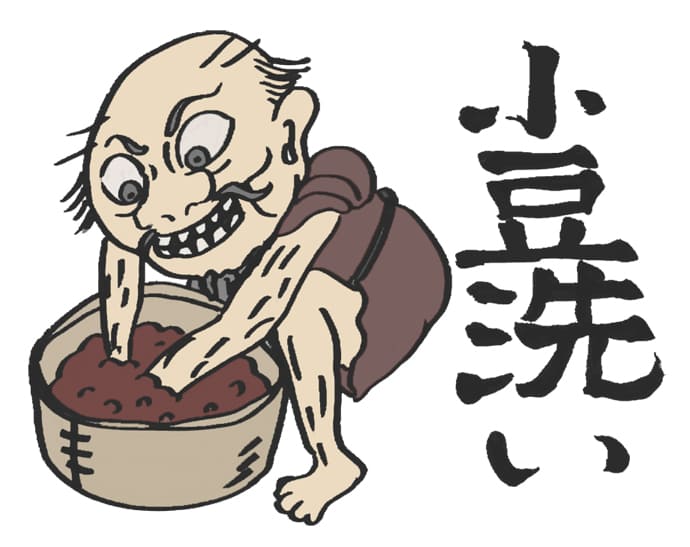
Azukiarai is typically described as a small yokai, often resembling a monk. It is known for its peculiar habit of washing red beans in rivers or streams, making a distinctive sound: “koro koro (コロコロ)” or “zāzā.(ザーザー)”
Although its main activity is seemingly harmless, encountering the Azukiarai can sometimes lead to strange and eerie occurrences. For instance, folklore often warns against being drawn to the sound, as it could result in mysterious incidents like being pulled toward the river.
Regional Variations in Azukiarai Legends

The stories of Azukiarai differ greatly across Japan. Let’s take a look at how this yokai is portrayed in different regions:
Azukiarai in Shimane Prefecture
In Shimane, the Azukiarai is considered a somewhat fearsome creature. It is said that the yokai not only washes beans but might also abduct humans. Locals are warned to steer clear of its washing sound.
Azukiarai in Oita Prefecture
Oita’s version of the Azukiarai adds an unsettling twist. This yokai is said to sing a chilling song:
“Shall I wash red beans, or shall I snatch a human to eat?”
The sound of its song can hypnotize listeners, drawing them unknowingly to the riverbank, where they might fall into the water.
Azukiarai in Ibaraki Prefecture
In stark contrast to the frightening tales, the Azukiarai in Ibaraki is seen as a lucky yokai. It is believed that if a woman with a daughter encounters an Azukiarai while washing beans by a stream, her daughter will soon find a good marriage. This has made the Azukiarai a yokai of good fortune in the area.
When and Where Does Azukiarai Appear?

Azukiarai is most often encountered at quiet riversides or mountain streams. The sound of beans being washed, particularly at night, is said to signal its presence. In some regions, the yokai is described as laughing or singing cheerfully, making it feel less ominous and more whimsical.
Azukiarai and Japanese Culture
Azukiarai and Japanese Values

The Azukiarai’s meticulous washing of beans mirrors the Japanese emphasis on cleanliness and order. In a country where rivers and natural water sources are deeply respected, this yokai might represent the harmonious relationship between humans and nature.

Furthermore, red beans themselves hold a special cultural significance in Japan. Used in celebratory dishes like sekihan (red bean rice), they are symbols of good fortune. This connection might explain why the Azukiarai is sometimes seen as a bringer of luck.

By the way, you were washing Azuki yesterday.

Yes. I was a real “Azukiarai” .
But don’t call me Yokai. I was just making red bean paste.
Why Is Azukiarai Considered Lucky?
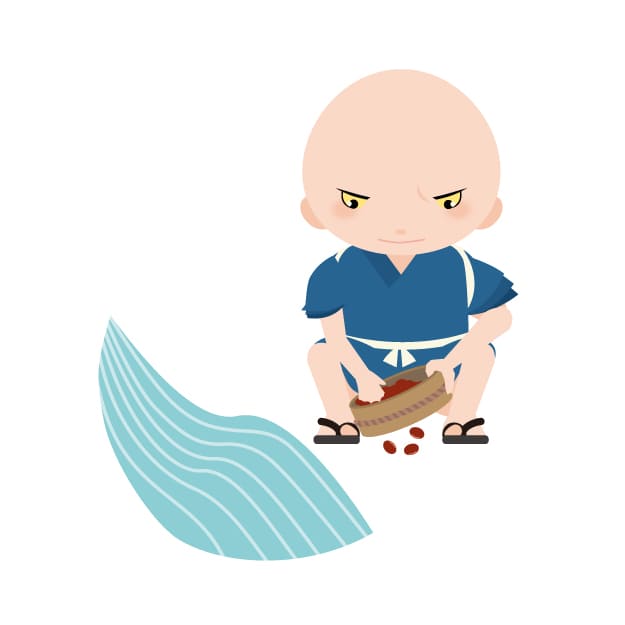
In regions like Ibaraki, the Azukiarai is associated with marriage and prosperity. Seeing it while washing beans is considered an auspicious sign, showcasing how yokai can serve both as sources of fear and bearers of good fortune in Japanese folklore.
Japanese Yokai Azukiarai Q&A
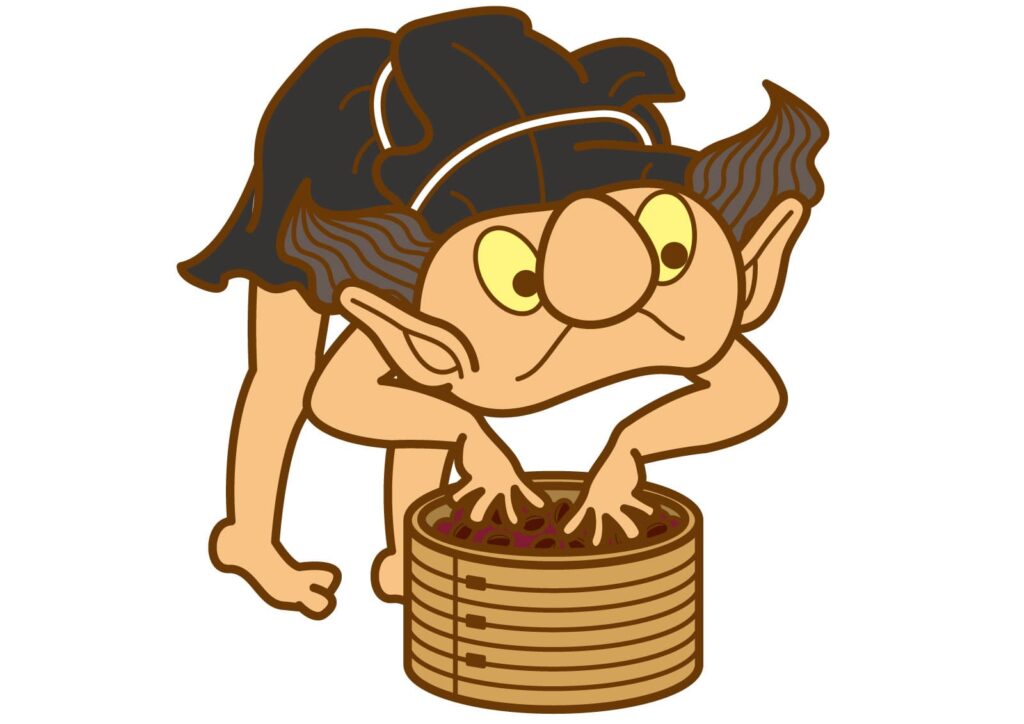
- QWhat should you do if you hear the sound of Azukiarai?
- A
Avoid approaching the riverbank! While some regions see the Azukiarai as lucky, most stories warn against being drawn to the sound, as it may lead to danger.
- QIs Azukiarai real?
- A
Azukiarai exists only in folklore. It reflects the creativity and imagination of Japanese storytelling, as well as cultural values and a respect for nature.
Conclusion
The Azukiarai is a fascinating figure in Japanese folklore, embodying both the mysterious and the familiar. Its legends vary widely depending on the region, ranging from eerie to uplifting. Whether seen as a fearsome spirit or a lucky charm, the Azukiarai remains an enduring symbol of Japan’s rich yokai culture.
Next time you hear the sound of beans being washed near a river, take a moment to reflect on this unique yokai and the culture that brought it to life!

If you are interested in Japanese culture, you may love these games!
Let’s play!

Yes! Let’s play these games below!

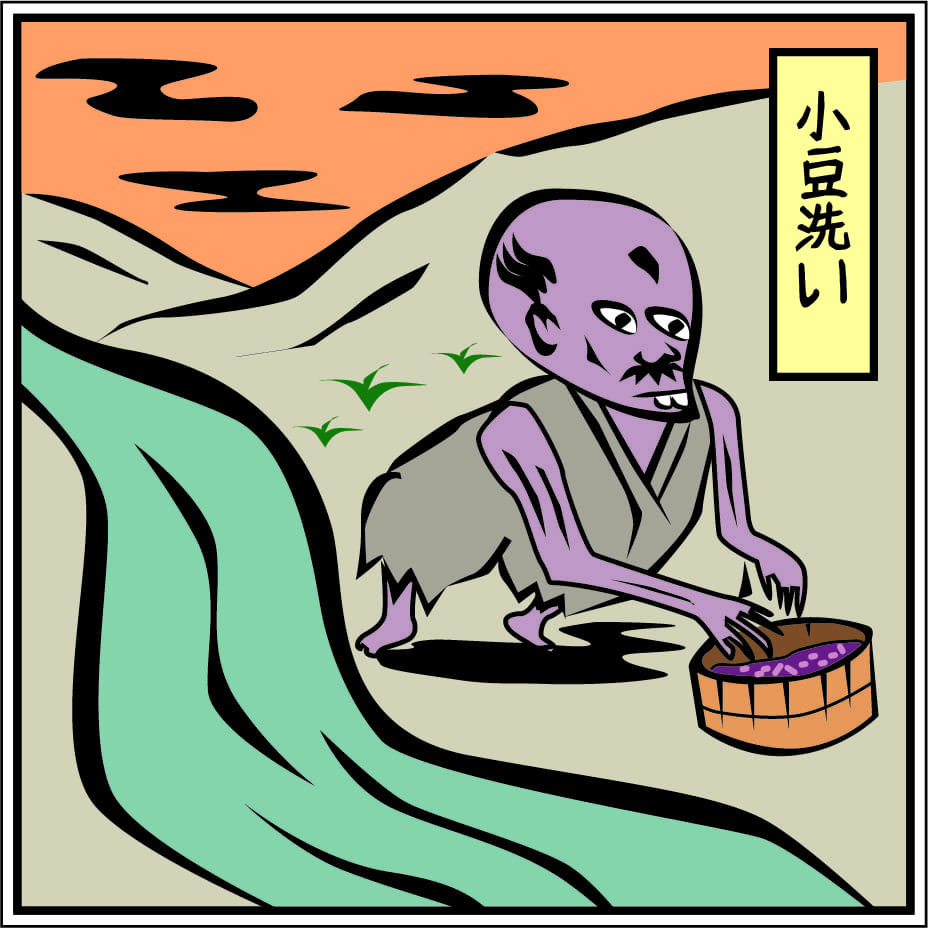

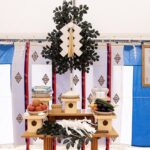

Comments